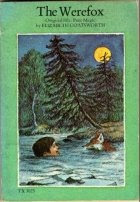166. Lukey Paul From Labrador by Adelaide Leitch
 Lukey Paul From Labrador by Adelaide Leitch. illustrated by Joe Rosenthal (Out of Print)
Lukey Paul From Labrador by Adelaide Leitch. illustrated by Joe Rosenthal (Out of Print)Buckskin Books, 10
Pages: 116 pages
Ages: 7+
Finished: Aug. 17, 2010
First Published: 1964
Publisher: Macmillan of Canada
Genre: children, historical fiction
Rating: 3.5/5
First sentence:
Lukey Paul ran to the outer rocks of Rattling Tickle.
Acquired: Purchased my own copy.
Reason for Reading: Read-aloud to the 10yo to go along with our history curriculum.
This little chapter book is part of the "Buckskin Books" series. Early chapter books meant for those who have just started reading on their own. The type is large and the line and a half spacing is used between text lines. The stories are all Canadian historical fiction and some popular Canadian authors & illustrators of the time pop up on the list of contributors.
Ten year-old Lukey Paul lives in Labrador and has caught himself a silver fox. He is especially proud as this fur is rare and should bring in a full winter's supply of provisions for himself and Uncle 'Lige. He catches a ride with Wilfred Grenfell on the Princess May as the doctor/missionary goes along the coast tending to peoples who need his care. Lukey is proud and selfish thinking only of his silver fox most of the time and in the end gets swindled for his fox. Later on, he learns a lesson that makes both him and others happy and satisfied in the end.
The story is very well-written, full of adventure and dangerous escapades as they travel on the sea. My son is partial to sea-stories so really enjoyed that aspect of the book. We learn quite a bit about Wilfred Grenfell as we watch him on this expedition along the coast and see what it was he did to aid the peoples in this region. His doctoring and teaching the "Eskimos" to produce items for re-sale are the main focus, and while the book doesn't dwell on it also doesn't shy away from his Christian mission. The "Eskimos" are portrayed with respect and not written down to as one might wonder about a book written from this era. I found nothing objectionable in the book at all, except, perhaps, the use of the word "Eskimo" but then that is the word that was used at the time the book was written and historically would be the correct term used in the 1890s although it would have been spelt Esquimaux. Another enjoyable out-of-print find for us.


Comments
Post a Comment